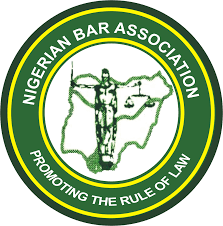An Introduction to Public Private Partnerships in Nigeria
Overtime there has been a critical need in Nigeria to fill the much-needed gap in infrastructure procurement, delivery, and operations. The concept of Public Private Partnership (PPP) was developed to ensure that both the public and private sector unify in delivering an agreed service or facility for the use of the public.
This concept further promotes a speedy implementation, operation, and delivery of projects. The PPP is a contractual agreement between a public agency of the government and a private sector entity.
In Nigeria, there has been a recurrent need to enhance public infrastructure such as power, railway, airports, water supply, hospitals, and other major social amenities.
The Government although largely responsible for the provision of these infrastructure are usually constrained for different reasons in providing these major infrastructures for use by citizens.
The solution therefore is mostly to embark on partnerships with private businesses as a stop gap measure to provide these infrastructures. The method through which this can be achieved is referred to as Public Private Partnership (PPP).
What is Public Private Partnership?
The explanatory memorandum to the Infrastructural Concession Regulatory Act 2005 (ICRA) defines Public Private Partnership as;
“The participation of the private sector in financing the construction, development, operation, or maintenance of infrastructure or development projects of the federal government through concession or contractual arrangements”.
Consequently, the concept of Public Private Partnership is a collaboration premised upon a contractual agreement between the public and private sector working together to complete a project based upon agreed tasks and risks where each party retains its identity and responsibilities.
To support the Federal Government’s push to use the Public Private Partnership model to fund much needed infrastructure projects, the Infrastructure Concession Regulatory Commission Act (ICRCA) was passed in 2005 and the Infrastructure Concession Regulatory Commission (ICRC) was established in 2008.
The Legal Framework For Public Private Partnership
The Infrastructure Concession Regulatory Commission Act (ICRCA) 2005 is the principal legislation for the regulation of Public Private Partnership in Nigeria between the private sector and the Federal Government of Nigeria.
The ICRCA provides the regulatory framework for the procedures set out in the National Policy for PPP. The Act encourages the participation of the private sector in financing the development, operation or maintenance of infrastructure and developments of Federal Government projects through concessions or other contractual arrangements.
Sec. 1 (1) of the ICRCA provides that : any Federal Government Ministry, Agency, Corporation or body involved in the financing, construction, operation or maintenance of infrastructure, by whatever name called , may enter into a contract with or grant concession to any duly pre-qualified project proponent in the private sector for the financing, construction, operation or maintenance of any infrastructure that is financially viable or any development facility of the Federal Government.
The Act applies to investment and development projects relating to any infrastructure of any Federal Government Ministry, Department or Agency (MDA). The Act confers on MDAs, the authority to enter a PPP contract with or grant concession to any private sector entity for the financing, construction, and maintenance of federal infrastructure.
The Act further ensures that MDAs place priority on their infrastructure projects and such priority projects may be qualified for concession under the Act.
The ICRCA in 2008 also established the Infrastructure Concession Regulation Commission (ICRC). The ICRC was established to regulate the Federal Government’s efforts towards Public Private Partnership which is aimed at encouraging economic development by addressing Nigeria’s physical infrastructure deficit.
The ICRC Act empowers the Infrastructure Concession Regulatory Commission to:
- Take custody of every concession agreement made under the Act and monitor compliance with the terms and conditions of such agreement.
- Ensure efficient execution of any concession agreement or contract entered by the Government.
- Ensure compliance with the provisions of the Act.
- Perform such other duties as may be directed by the President from time to time and as are necessary or expedient to ensure the efficient performance of the Commission under the Act.
Some of the popular Public Private Partnership models adopted in Nigeria are Design-Build-Finance-Transfer, Build-Operate-Own, and Design-Build-Finance-Operate.
A few examples of Public Private Partnership projects are:
| The Development and Operation of a deepwater port in the Lagos Free Trade Zone at Ijebu Lekki, Lagos State | |
| The development and maintenance of Tafawa Balewa Square (TBS) | |
| The design, engineering, procurement, construction, operation of Domestic Wing of the Murtala Mohammed International Airport (MMA 2) |
Public Private Partnership at the State Level
The concept of Public Private Partnership has also been adopted by some states in Nigeria and these states have enacted a regulatory framework to guide Public Private Partnerships in their State. Two of such states are Lagos State and Rivers State.
Lagos State – Public Private Partnership
The Lagos State government also encourages private sector involvement in the development and operation of infrastructure and development. The Lagos State Public Private Partnerships Law was enacted by the Lagos State House of Assembly to regulate Public Private Partnerships for state owned projects and infrastructure in 2011.
The Law establishes the Office of the Public-Private Partnerships (OPPP), a governing Board for the office and the functions of the Board which includes being the policy making body on Public Private Partnership for the state government amongst other functions.
In 2015, the Office of Public Private Partnerships (OPPP) was disbanded and thereafter reconstituted in 2017 to enhance the development and delivery of Infrastructure Projects in Lagos.
In executing some of these Public Private Partnership projects, the Lagos State office of Public Private Partnerships has also adapted the popular models being the Design-Build-Finance-Transfer, Build-Operate-Own, and Design-Build-Finance-Operate.
Examples of Public Private Partnership in Lagos State are;
- The Blue Line Rail project
- The Toll Road Concession Project
Rivers State – Public Private Partnership
The Public Private Participation in Infrastructure Development Law was signed into law in 2009 and provides the regulatory framework for private sector participation in infrastructure and projects in Rivers State.
The law establishes the Rivers State Bureau for Public-Private Partnerships (BPPP) as an agency to oversee the development, promotion, and implementation of public-private partnerships in the State.
Conclusion
The provision of a regulatory framework to guide PPP in Nigeria is in a bid to encourage private sector partnership and investment in the Nigerian economy.
While there has been several examples of PPPs between the Nigerian government and the private sector, there is still room for more private participation and there are still ongoing projects and infrastructure in need of private sector investment.
Berkeley Legal is a dedicated full service top commercial law firm. We provide comprehensive and sophisticated range of specialized and personalized legal services that are designed to meet the various needs of a highly diversified local and international clientele.
If you would like to know more about Public Private Partnership, please contact info@berkeleylp.com
The information provided in this article is for general informational purposes only and does not constitute legal advice.







